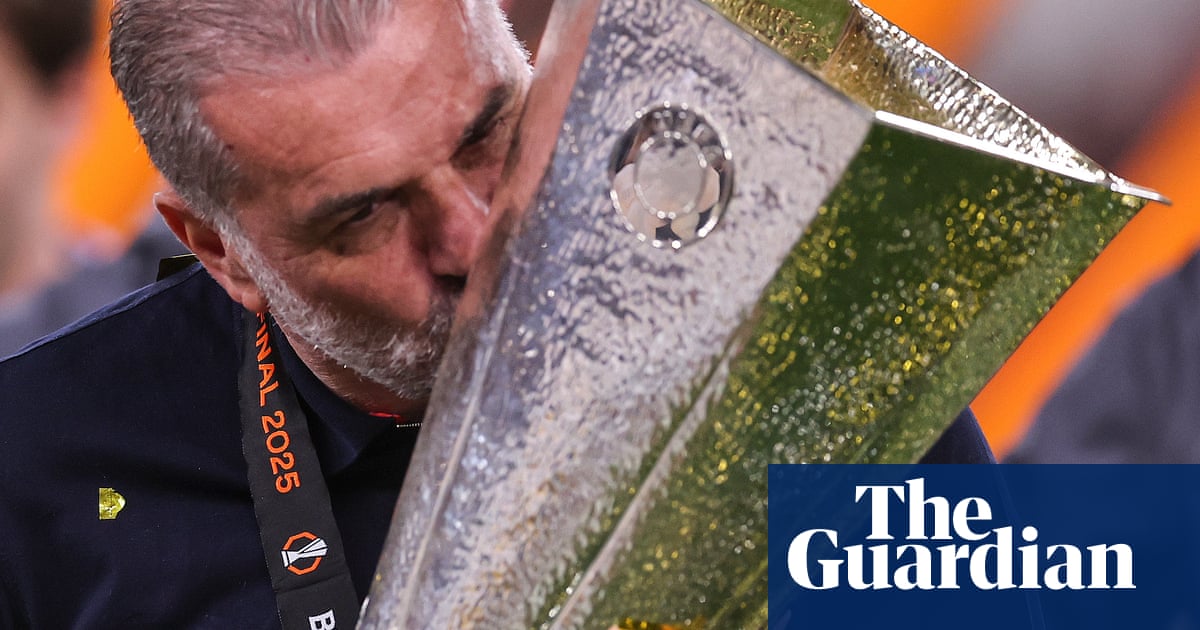Finals are not for the playing; they’re for the winning. Who cares about the spectacle? Who cares about the quality? At some level football is always more about the narrative and the drama than technical mastery. Tottenham certainly will cheerily ignore what a shambolic game of football this was as they bask in theirfirst trophy since 2008, their first in European competition in 40 years. Glory comes in many forms, and just because this might not be how Danny Blanchflower sanctioned it, does not mean this was not, in its own way, glorious.
But it was a baffling game. For the third round in a row, Tottenham prevailed with a sort of ultra pragmatism. Ange Postecoglou always wins a trophy in his second season, a fact of which he has delighted in reminding everybody. It just seems odd that it took him that long to move away from his characteristic attacking, high-pressing style to a blueprint José Mourinho might have left behind in a drawer. Ange stared into the Barclays, but the Barclays stared back far harder into him.
This is Tottenham, the club of Arthur Rowe and Bill Nicholson, the masters of push-and-run, and they won a major final with a 61% pass completion rate. They completed just 115 passes in the entire game, none of them key. That’s one accurate pass every 52 seconds. But they won, and that, for now, is all that matters. However unsatisfactory the game, there was no mistaking the joy at the final whistle, the players cavorting in the goalmouth, the great roar form the fans in white at that end of the ground.
From the off, the game was bewilderingly frenzied. There was little pattern, little composure, no sense of feeling the opponent out, just a manic intensity as though neither side could quite believe they were in a European final. Perhaps they’d looked at the Premier League table recently. Goodness knows what the rest of the world thought: you spent all that money buying the best we had, for that?
There has been a theory as each side has won only one of their past 10 league games, that their position in the table is false, a reflection less of their ability than of the fact that the league had ceased to be a priority. But this looked an awful lot like 16th v 17th in the Premier League. There were mistakes everywhere, perhaps most alarmingly from a Spurs point of view from Guglielmo Vicario, who made fine saves from Alejandro Garnacho and Luke Shaw but had a fretful, skittish game.
His flap at a corner midway through the second half presented Rasmus Højlund with an apparently open net. But as Højlund’s header looped towards goal, there suddenly, decisively, was Micky van de Ven, flying through the air to hook clear. It can be debated whether it’s entirely wise to base a defensive policy on the implausible pace of one man, particularly a 6ft 4in Dutchman whose hamstrings practically sing with the strain every time he moves, but in the very immediate term it worked.
The decisive moment was entirely in keeping with a game that was thrilling in its scrappiness, a mess of a goal to settle a mess of a game. In fairness, it began with the first bit of subtlety Tottenham had shown around the box from Richarlison, who had not until that moment seemed likely to offer the moment of inspiration. This, fleetingly, was a return to the lithe forward he had once been, before the injuries transformed him into a glowering brawler. But it was his dart infield and reverse pass to Rodrigo Bentancur that unlocked the door – if it was actually locked, which remains unclear.
Only when Pape Sarr, receiving the ball from the Uruguayan, whipped in a dangerous inswinging cross did the prevailing mood reassert itself, as the ball eventually found its way past a flailing André Onana off Shaw’s arm. Brennan Johnson had applied the pressure to force the mistake, but it was not good goalkeeping and it was not good defending, an absolute clown car of a goal. If anything, that should intensify the urge for Spurs to win more in the coming years, if only so their pre-match montage at theTottenham HotspurStadium doesn’t have to end with such a ludicrous goal.
Sign up toFootball Daily
Kick off your evenings with the Guardian's take on the world of football
after newsletter promotion
For Johnson himself, it was a moment of the sweetest vindication. He had become the target of sections of the Spurs fans’ frustration earlier in the season, deactivating his Instagram account in September because of the amount of abuse he’d received. When he then scored against Coventry a few days later, he barely celebrated. The sense was of a disillusioned player questioning his position in the game. As he has been credited with the goal in the final, it was his 18th of the season in all competitions.
And of course Tottenham will not care at all about the nature of their display or the game. At least not tonight or tomorrow. But at some point soon a decision will have to be made on whether they really want to commit their future to this new Barclaysball Postecoglou.
